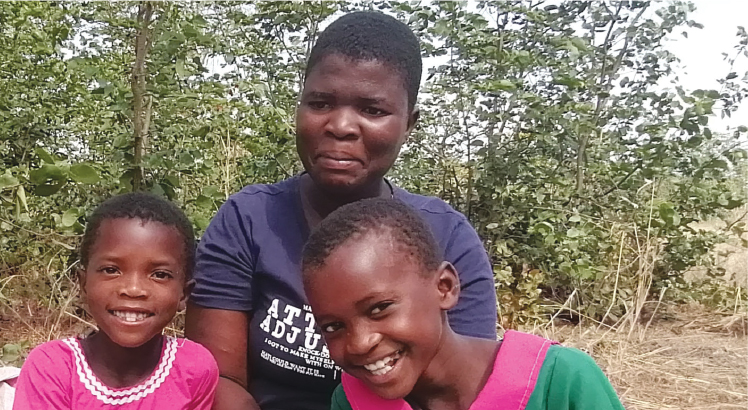Parents spur homeschooling
A parent with basic literacy skills is more likely to guide children in their academic journey than one without any education.
But only 62 in every 100 adults in Malawi can read and write.
This is one of the downsides of the country’s education system dominated by public schools with inadequate teaching and learning materials where a teacher serves over 80 children.

Mudyeso Chimphonda, headteacher of Khale Primary School in Neno District, said the situation makes it difficult to deliver lessons.
“Since the teacher has too many learners to attend to, children who need special attention to grasp what the teacher is saying end up failing and being misjudged as not smart,” he explains.
World Vision Malawi is equipping parents in rural areas with skills to ensure children continue to learn and develop academically at home.
Homeschooling has proved pivotal since March 2020 when the government closed schools to reduce Covid-19 transmission.
World Vision supports government efforts to develop and rollout remote schooling strategies, including education programmes aired on radio and television as well as age-appropriate reading materials.
However, limited parental involvement and poor student performance proved challenging to efforts to ensure children keep learning during the lengthy school closures.
To address the Covid-19 challenge, World Vision adapted its traditional literacy programming, developing the Caregiver Home-schooling Instruction Programme to strengthen the caregivers’ capacity to lead their children’s education.
According to World Vision Malawi education technical programme manager Thandeka Nkhonde, the child-centred Christian organisation trained 590 teachers, 1 200 volunteers and 7 451 caregivers to reach 81 442 children aged three to nine.
Esther Khungwa, one of the parents trained in homeschooling techniques, started teaching her two daughters, Anne and Grace, who are in Standards Two and Three at Khale. Shortly afterwards, other children and two other mothers joined in.
“The three of us take turns to teach the children,” she explains. “I am living my dream to become a teacher, which was dashed when I quit school for marriage at an early age.”
Khungwa has been putting her natural talent to good use since parents from Siliviya Village, Traditional Authority Symon, attended the training.
She happily assists her children and their peers in her neighbourhood to achieve their potential and career goals.
Imparting literacy and numeracy skills in them, she explains: “Our efforts are bearing the desired fruit.
“Last term, Grace, aged eight, scooped position one in her class while Anne was number three.”
And Grace is also happy to learn from her mother in a different setting.
“Unlike at school, mother repeats lessons until I fully understand what she is teaching. Here, we also play games during some lessons,” says the girl who aspires to become a teacher.
Education expert Steve Sharra says parental involvement is vital in children’s learning.
The recent Multiple Indicator Cluster Survey by the National Statistical Office with support from Unicef shows that 66 percent of children in urban primary schools received help during homework. However, the nationwide survey indicates that only 56 percent of rural children received school-related help.
The findings also show that 72 percent of children from well-off families received help with school work, compared to 42 percent of children from poor families.
Concurring with Chimphonda, Sharra says parental involvement is a must as overwhelmed teachers in underfunded schools with inadequate textbooks and overcrowded classrooms struggle to help children with special needs learn better.
He explains that due to chronic underfunding, the country’s school system does not optimally contribute to human capital development for individuals and communities to become productive and self-reliant.
He states: “We need to seriously pay attention to the Malawi 2063 vision and its implementation plan to develop the economy and generate adequate resources for the education sector.
“Most importantly, we need to end the rampant corruption and wastage of national wealth so that we can give our children and their families a better future.”
Recently, Minister of Education Agnes NyaLonje reiterated the government’s commitment to improving the country’s education system to meet international standards.
She says: “This is essential for human capital development and the realisation of our socioeconomic development as outlined in Malawi 2063.
“It is also essential if we are to give every child the opportunity to realise their potential and provide them with opportunities to avoid a life of poverty.”






One Comment